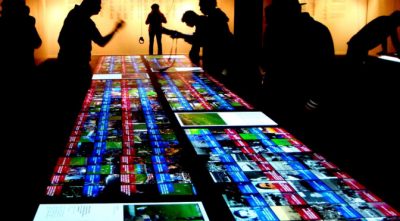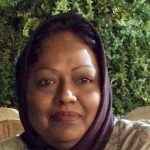By
Florence Joseph
Today, the most pressing need of mankind is peace – a peace that is based on righteousness and truth. Global peace and security cannot however be achieved without concentrated and collective efforts of the global community.
Peace and security is essential for developing a better world. Many societies the world over are suffering with burning problems like poverty, starvation, ill-health, ignorance, and negligence to helplessness, injustice, inequality and interference.
Industrialisation and commercialisation have come between nature and man hampering the ecological balance with pollution.
Gigantic strides have been made in scientific and technological inventions in political, social and cultural thoughts as well as in religious matters, yet the world is still far behind and a long way from achieving peace and security.
The Constitution of the United Nations Educational, Scientific and Cultural Organisation (UNESCO), adopted in November 1945 and ratified by all 20 founding countries of the organisation declared the basic reasons for its establishment as: removal of all obstacles caused by lack of knowledge of the world population in relation to each other, obstacles which are the principal causes of inequalities, misunderstandings, violence and war.
It has been experienced that human minds are the roots of all evil. The minds, which govern good and bad activities are said to be the best of friends and the worst of enemies of humanity.
Ignorance of the living styles of other people has all throughout human history been the principal cause of distrust among world peoples, and the root cause of most difficulties which have resulted in war.
Today, the spectacular developments of information technology and the creation of planetary networks have ushered in the new revolution that can shuttle vast amounts of information across the world with lightening speed, such that the World Body has delegated significant parts of its goals to the mass media because of their pivotal role in shaping public opinion.
Therefore, mass media, as shapers and formers of public opinion, play a unique role in changing attitudes of their audience, introducing new values and promoting certain ideas, among them being peace and co-existence.
Developments in the age of communication (age of reducing distances) have led to the emergence of a new paradigm in the realm of culture, information exchange and in the development of ideas.
So, one can no longer be satisfied with the role of media in its traditional definition and concept.
In the new paradigm in which the contemporary world is involved, individuals can no longer be mere consumers and spectators or just mere spectators. Individuals have no alternative but to assume new roles, which they have to perform on the basis of cultural diversity.
In the global village where time and space have become irrelevant concepts, sources of mass media and communication give meaning to life. However the question which needs to be answered is whether the advantages of information technology have brought peace and security to humanity, taking it closer to prosperity and distancing it from threats and dangers.
In other words, have development and evolution of mass communication and information technology made the world more secure and peaceful?
Mass media, news agencies, the press, radio and television, through selection, deciding the content and analysis of news and presentation of news reports, in a way create realities.
Therefore, mass media do not function as a means to secure political and economic power, but as a source of power to maintain the status quo.
By revealing the structures of power, domination and coercion, as well as through individual and collective education, functioning as a type of language, the mass media can operate as levers for changing beliefs and views on war and peace. It can also play a key role in the creation of discourse of peace and a peace-loving culture.
They can also consolidate the culture of peace by changing the discourse dominating international relations; replacing talks of power and profit with one of understanding and love for humanity; changing the static attitudes of decision-makers towards the world and its inhabitants; shaping public opinion and changing its approach to the world and international relations by putting peace at the core of their operation and finally by redefining national interests of countries by influencing the definition and by redefining of national and cultural identities.
Under the present circumstances, mass media, based on their social responsibility and professional ethics, must perform as means for promoting understanding, tolerance, and coexistence and also work as deterrents or at least minimise the flare up of wars, ethnical disputes, cultural and social unrests.
In the globalised village, mass media are socially duty-bound to endeavour to find ways and means of achieving a desirable state of affairs or at least move in this direction so that the circulation of information would lead to a healthy dialogue among civilisations and eventually result in the further development of peace.
Furthermore, media ethics must be negotiated not only professionally but also institutionally, nationally and internationally. Such ethics must be based on international agreements that have already established the right to communicate as a human right.
However, ethics without commensurate institutional framework and sanctions often translate into pious wishes. To obtain a pluralism of content to reflect the diversity and complexity of the world, there is a need for pluralism of media structures at local, national and global levels.
The media, in the globalised world, should be seen as contributing positively to peace building and education rather than a culture of violence.
Peace journalism can be promoted through greater freedom, balance and diversity in media representations.



No Comments Yet!
You can be first to comment this post!